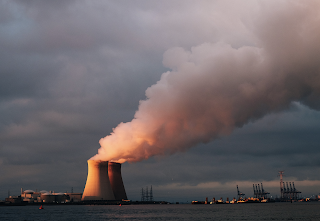by Eylül Begüm Sağlam, PhD student in Political Science and a 2023-24 Research Assistant at the European Union CenterOn November 22, 2023, the Dutch electorate went to the polls to decide who will represent them for the next four years. The outcome of the general elections was surprising for many, with the right-wing populist Party for Freedom (PVV) winning 37 seats in the House of Representatives, more than any other party. Nevertheless, this victory on the part of PVV did not necessarily strengthen the hand of its leader Geert Wilders, who must now form a coalition in order to hold a majority in the 150-seat chamber.
[1] In early March, Wilders admitted that he would not be able to serve as the prime minister since his candidacy was not backed by other possible coalition partners after months-long discussions.
[2] This announcement was followed by former senator Kim Putters’ statement on how an “extra-parliamentary” government would be formed between four right-wing parties: PVV, People’s Party for Freedom and Democracy (VVD), Farmer–Citizen Movement (BBB) and New Social Contract (NSC).
[3] The coming days will show how coalition agreements will be finalized between the parties, but an analysis of Wilders’ past, present, and future projects a rise of right wing populism in Europe.
1. Past: Wilders’ VVD Days The Netherlands’ current wave of populism — albeit in a “moderate”
[4] form — can arguably be dated back to 2002 with Pim Portuyn's formation of Pim Portuyn List (LPF), which received 17 percent of the votes in the 2002 general election despite having been established only a couple of months prior.
[5] After LPF broke down following the assassination of Fortuyn, his “legacy was taken up by” Wilders.
[6] Nevertheless, Wilders did not enter the political scene with PVV. In fact, his early days as a politician looked quite different from how he portrays himself today. As a VVD member of the parliament, Wilders was in favor of several proposals which he later castigated: adoption of the euro, extension of EU membership to Eastern European countries, and negotiations on Türkiye’s membership.
[7] In the first election after its foundation, in 2006, PVV received nine seats in the House of Representatives and backed the minority government via a support agreement (
gedoogakkoord) formed by VVD in 2010.
[8] Although PVV's rise was alarming, it was not surprising.
2. Today: Wilders Taking the Lead? How should the current support for PVV be explained? PVV’s upset in the 2023 elections should not be understood simply through the lens of the recent campaign dynamics. Rather, the support for PVV says more about the electorate's long-running dissatisfaction with Dutch politics than their affinity with the PVV per se. Reflecting on the 2017 general elections, De Vries (2018, 1542-1545) argues that three factors can help us understand the political behavior of voters in the Netherlands and the increasing support for right-wing populism within the context of PVV: party fragmentation, the fading salience of mainstream politics as well as parties, and economic insecurity.
[9] First, 15 parties were elected into the House of Representatives in 2023, which has only 150 seats, indicating the existence of party fragmentation. Second, as De Vries (2018, 1544-1545) noted after the 2017 elections, the inclusion of various small and new parties (e.g., DENK and New Social Contract) in the House of Representatives vis-à-vis major parties highlights the shift in the Dutch electorate's preferences from right-left ideology to theme-based parties (e.g., liberal values, immigration, EU skepticism, animal rights).
[10] And third, anti-immigration sentiment and EU skepticism among the Dutch derive from concerns about the economy.
[11] This also explains why not only PVV”s anti-immigration rhetoric but also proposals to leave the EU (“Nexit” referendum)
[12] may receive support from a wider audience.
3. Future: Will Wilders be “Milders”[13]? Wilders may have stepped back from forming the government for the time being, but it should be noted that the Netherlands is known as a country where coalition dialogues between parties may take months, even almost a year, considering how the previous coalition took 299 days to form.
[14] Regardless of whether Wilders comes forth again or steps back as he recently did, both he and his party would need to do more than coming in first in the elections if the goal is to consolidate power and maintain their political popularity for future elections. One strategy that Wilders may employ is to de-radicalize both his rhetoric and policy proposals. Wilders has already shown signs of transforming into a milder version of his political self as he laid stress on becoming “prime minister for all Dutch people” two weeks before the elections took place.
[15] More tangible strategies toward such a goal for Wilders may include rolling back his anti-EU rhetoric, stepping back from radical anti-Islamic proposals, and following a more center-right leaning political profile.
[16] Even if Wilders may need to put aside his dreams of becoming the prime minister of the Netherlands, the recent elections could still be portrayed as a success story for the radical right-wing populism in the country: a party which once could only push for limited illiberal actions by supporting a liberal minority coalition, may be now at the mainstream center to make these illiberal policies finally come to fruition.
[17]

Quo Vadis Wilders? Understanding the Failure (and Success) of Populism in Dutch Politics















